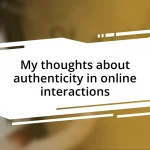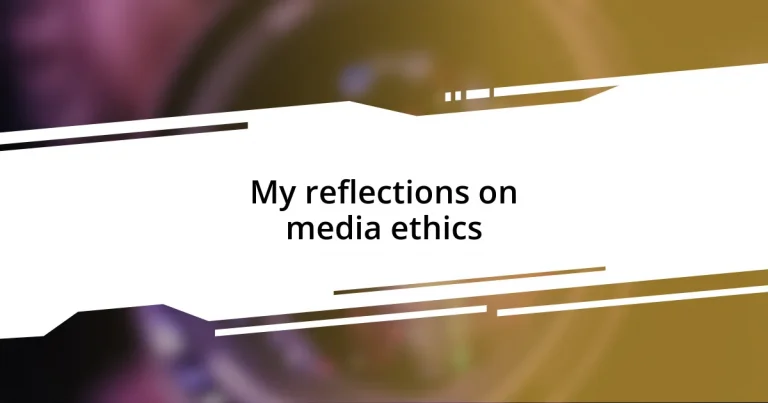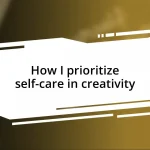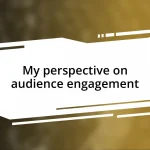Key takeaways:
- The rise of social media has blurred the lines between factual reporting and opinion, increasing the need for critical assessment of information.
- Journalists have key ethical responsibilities, including accuracy, fairness, transparency, respect for privacy, and empathy towards subjects.
- Challenges in ethical reporting include balancing public interest with potential harm, pressures from fast-paced news cycles, and the need to mitigate personal and societal biases.
- Future trends in media ethics emphasize transparency, the integration of technology like AI, and the importance of diversity and inclusion in storytelling.
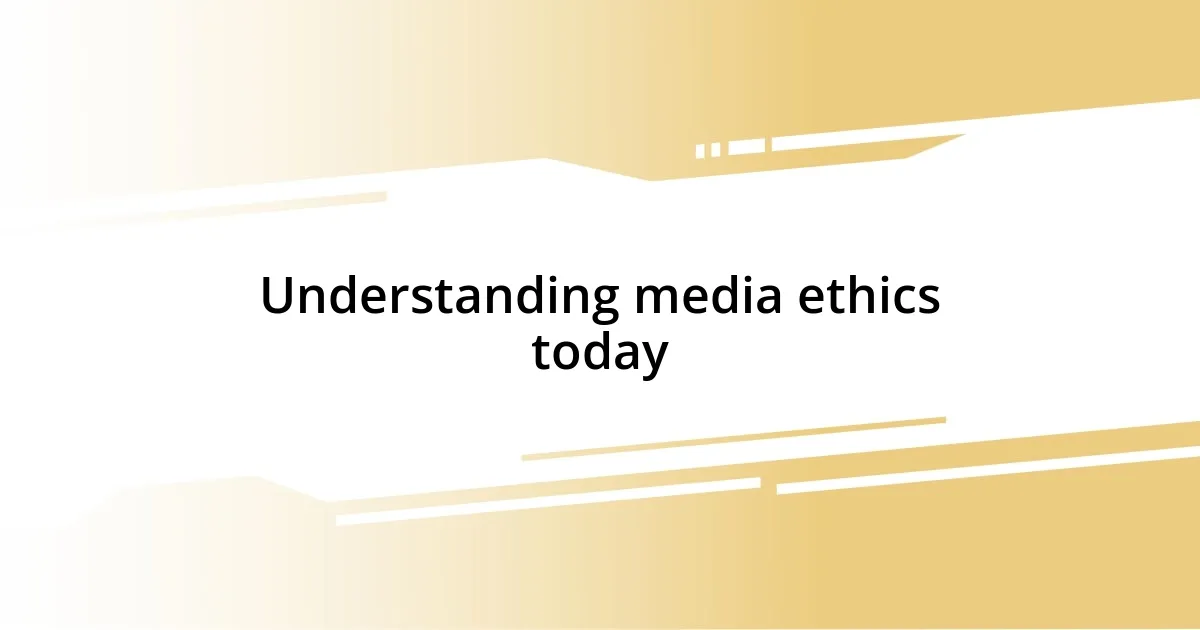
Understanding media ethics today
Navigating the landscape of media ethics today feels more complex than ever. With the rise of social media platforms, the lines between factual reporting and opinion have blurred. I often find myself questioning, what does it really mean to be ethical in a world where misinformation can spread like wildfire?
There was a time when I strictly followed mainstream news outlets, believing they upheld the highest standards of integrity. However, as I delved deeper, I came to realize that even reputable sources can be swayed by sensationalism. This realization left me feeling a bit disillusioned, sparking a desire to critically assess the information presented to me rather than passively consuming it.
Ethics in media also extends to the responsibility journalists have toward the subjects of their stories. I remember reading about a controversial figure whose life was dissected publicly, pushing the boundaries of privacy. It made me reflect on how deeply we should consider the human impact of our words and images in the digital age. Isn’t it crucial for media professionals to balance storytelling with empathy?
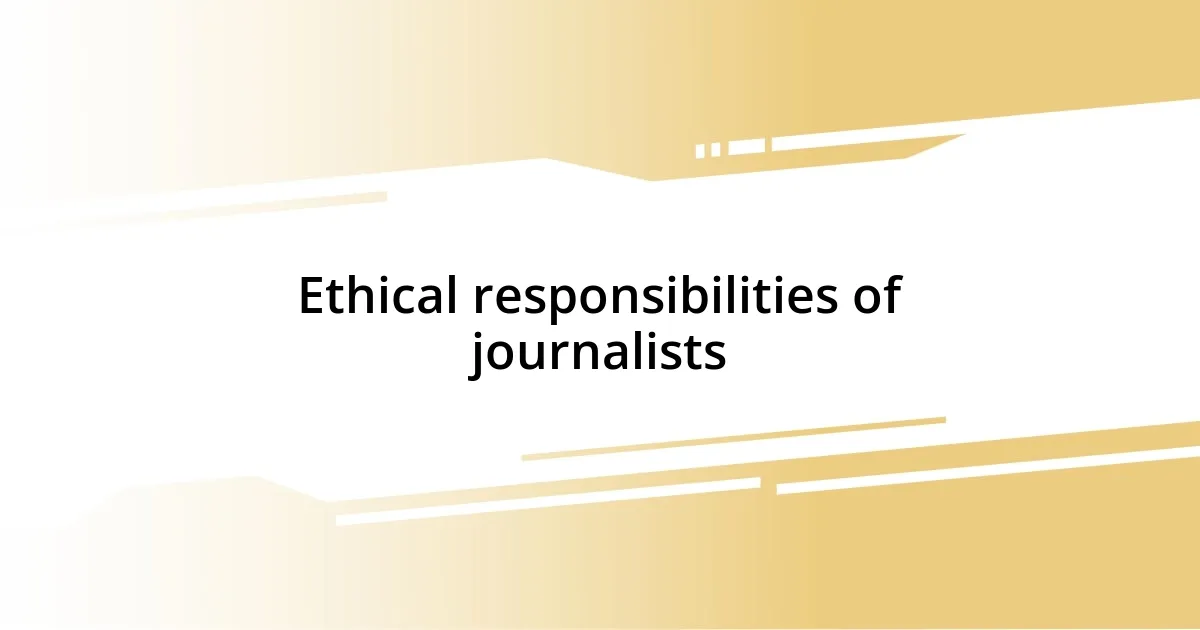
Ethical responsibilities of journalists
When I think about the ethical responsibilities of journalists, I’m reminded of a time I discovered a local journalist breaking a significant story. It wasn’t just the facts that mattered; it was how they presented those facts. They took great care to verify information, cite sources properly, and avoid sensationalist headlines. This commitment to accuracy not only built trust with their audience but also set a precedent for responsible journalism in our community. Journalists must ensure that their work reflects honesty and integrity, as these are foundational to maintaining public trust.
Here are some key ethical responsibilities that I believe every journalist should uphold:
- Accuracy: Ensuring that all information is fact-checked and truthful, avoiding any misrepresentation.
- Fairness: Giving balanced coverage to all sides of a story, allowing for diverse voices to be heard.
- Transparency: Being open about sources and methods used in reporting, which fosters credibility.
- Respect for Privacy: Acknowledging the need for confidentiality and sensitivity regarding the subjects of their stories.
- Embodiment of Empathy: Understanding the human impact of their reporting and striving to tell stories with compassion.
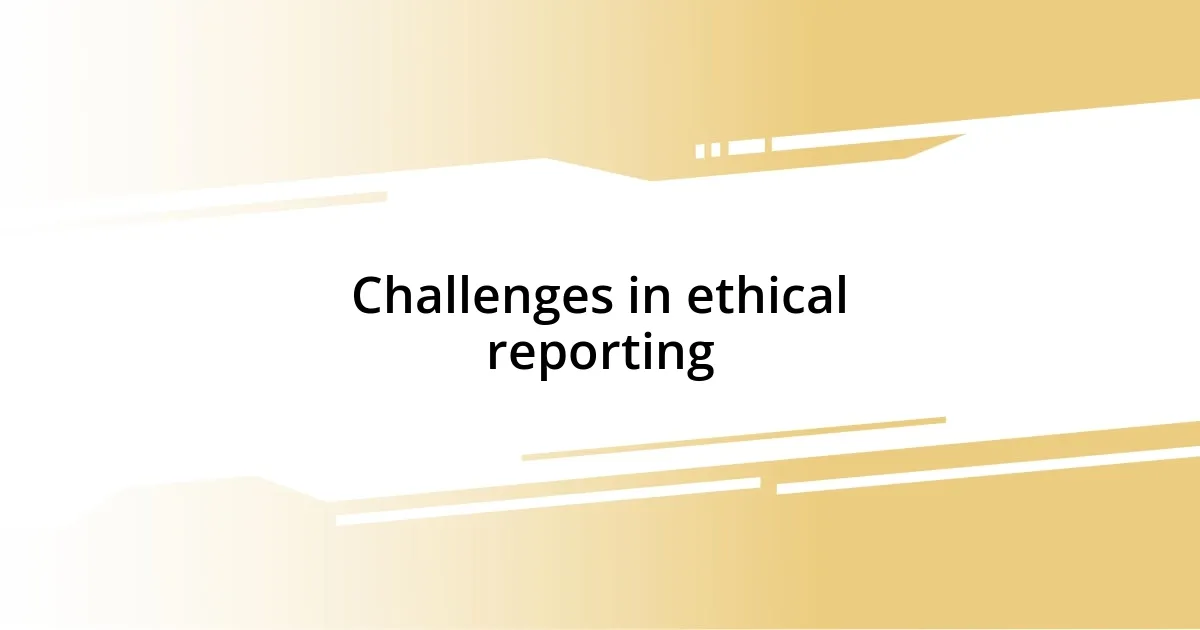
Challenges in ethical reporting
Reporting ethically is fraught with challenges that can often lead to difficult choices. I recall a time when I was involved in a story that required me to weigh public interest against the potential harm to an individual. It wasn’t just about finding the scoop; it was about recognizing that the words I chose could significantly impact someone’s life. This moment made me realize that ethical reporting demands a delicate balance of responsibility, especially when dealing with sensitive subjects.
Another challenge lies in the pressure to conform to fast-paced news cycles. I remember scrolling through social media and spotting breaking news that went viral within minutes. Although the adrenaline rush of being first can be exhilarating, it often compromises the thoroughness of reporting. Journalists can find themselves caught in the rush to deliver news, sometimes leading to overlooking fact-checking or deeper context, which can mislead the audience in substantial ways. Have you ever wondered how many stories have been misrepresented because of the immediate pressure to publish?
Lastly, biases—both personal and societal—pose significant challenges in ethical reporting. I can’t shake the memory of interviewing a community leader while grappling with my internal biases. It was crucial for me to approach the interview with an open mind, ensuring their story was told authentically rather than through a skewed perspective. This experience reinforced my belief that journalists must constantly reflect on their own viewpoints and strive to provide a platform for underrepresented voices, making ethical reporting not just a responsibility, but a crucial obligation.
| Challenge | Description |
|---|---|
| Balancing Public Interest and Harm | Weighing the benefits of sharing information against the possible harm to individuals. |
| Fast-Paced News Cycles | Pressure to publish quickly can compromise accuracy and depth in reporting. |
| Personal and Societal Biases | The need for journalists to recognize and mitigate their biases to tell stories authentically. |
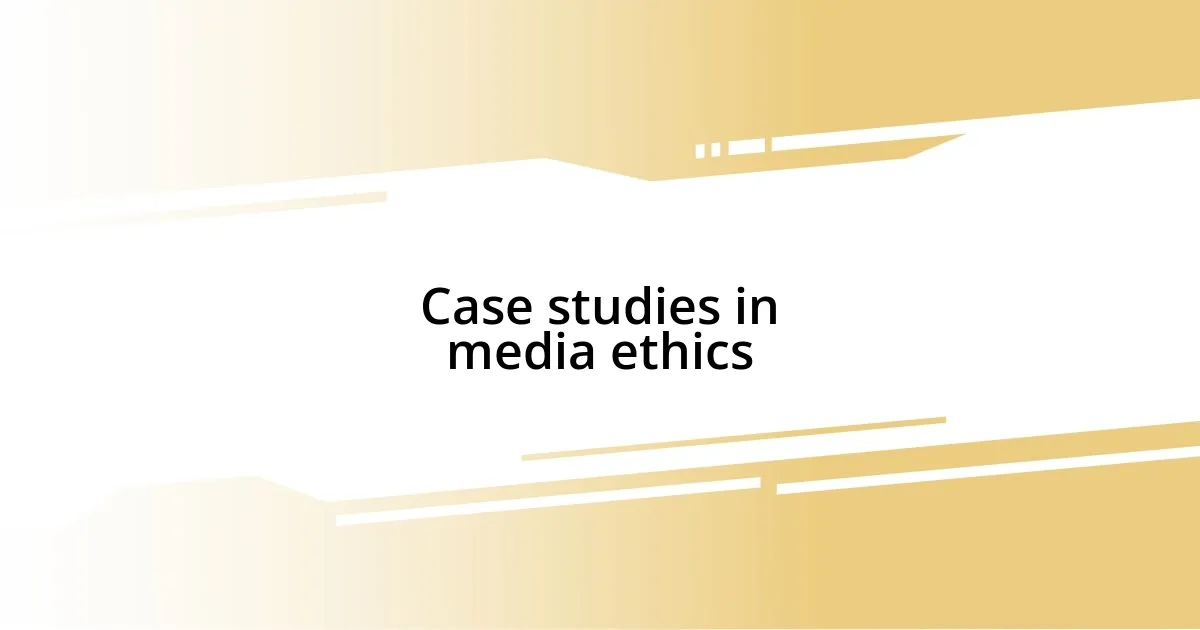
Case studies in media ethics
One case I often reflect on is the coverage of a tragic accident in my town. Local media rushed to report the events, but one outlet stood out by prioritizing compassion over sensationalism. They took the time to connect with the victims’ families, allowing them the space to grieve while sharing their stories. Wasn’t that a refreshing approach? It really highlighted for me how, in moments of crisis, ethical journalism can uplift and humanize rather than exploit tragedy for headlines.
I also recall a high-profile interview that stirred public controversy. The journalist faced backlash for confronting a political figure about allegations without giving them adequate opportunity for a response. This situation made me realize that while holding power accountable is crucial, the method matters significantly. How do we balance tough questioning with fairness? This experience underscored my belief that ethical reporting requires not just integrity in content but also in approach, ensuring all parties are heard.
Moreover, I once attended a panel discussion where a veteran journalist shared his experience covering a sensitive story about a community in distress. He discussed how he chose to refrain from using certain photos or details that could stigmatize individuals involved. Listening to him made me understand that respecting the dignity of subjects is as vital as reporting facts. Have you ever considered the real implications of the images we share? Ethical decisions in journalism frequently require us to look beyond the story itself and acknowledge our responsibility toward those affected.
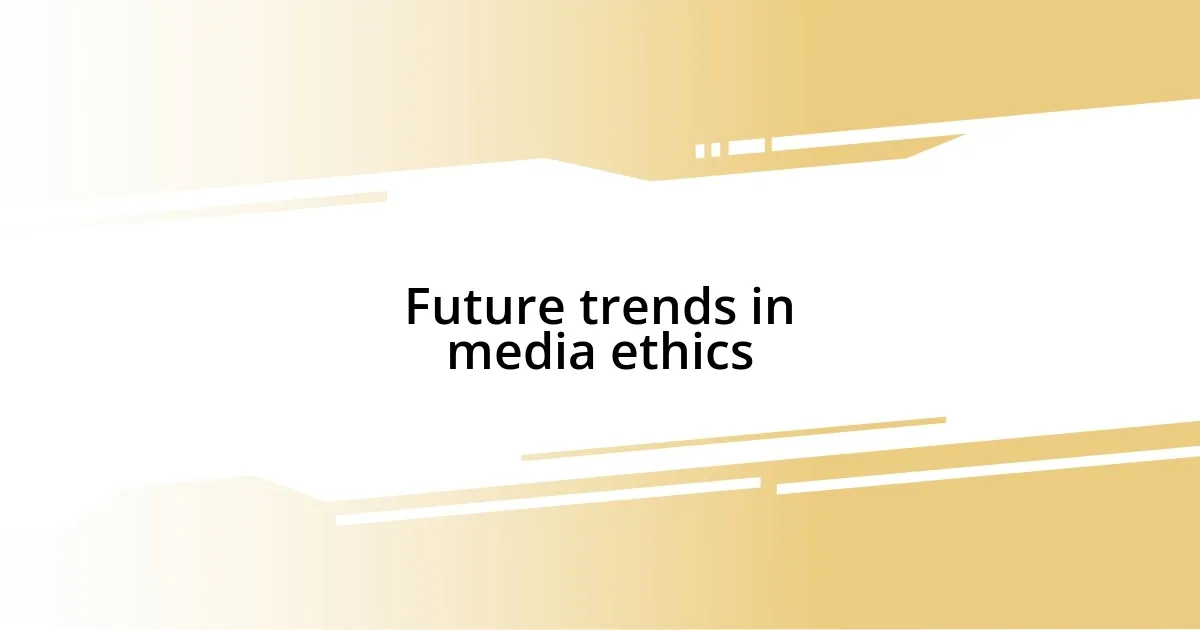
Future trends in media ethics
As I think about the future of media ethics, I see a growing emphasis on transparency. It reminds me of a time when I had to report on a local government decision. The public demanded clarity, and it struck me how crucial it is for journalists to disclose their sources and methods. This not only builds trust but allows readers to critically engage with the information presented. How often do we stop to consider the origin of our news?
Another trend I foresee is the integration of technology into ethical practices, particularly AI in journalism. During a recent conference, a panel discussed how AI can help in fact-checking, which I found fascinating. However, it also raised concerns about the ethical implications of relying on algorithms. The question looms—can machines truly understand nuance in human stories? I believe that while technology can enhance reporting, it should not replace the vital human element.
Finally, the push for diversity and inclusion in media is becoming more pronounced. I recall collaborating on a project that brought voices to the forefront that are often overlooked. It was enlightening to realize how diverse perspectives enrich storytelling. This movement towards inclusivity makes me hopeful; it emphasizes that ethical journalism isn’t just about truth but also representation. Are we ready to embrace the full spectrum of human experience in our narratives? I certainly think we should be.








